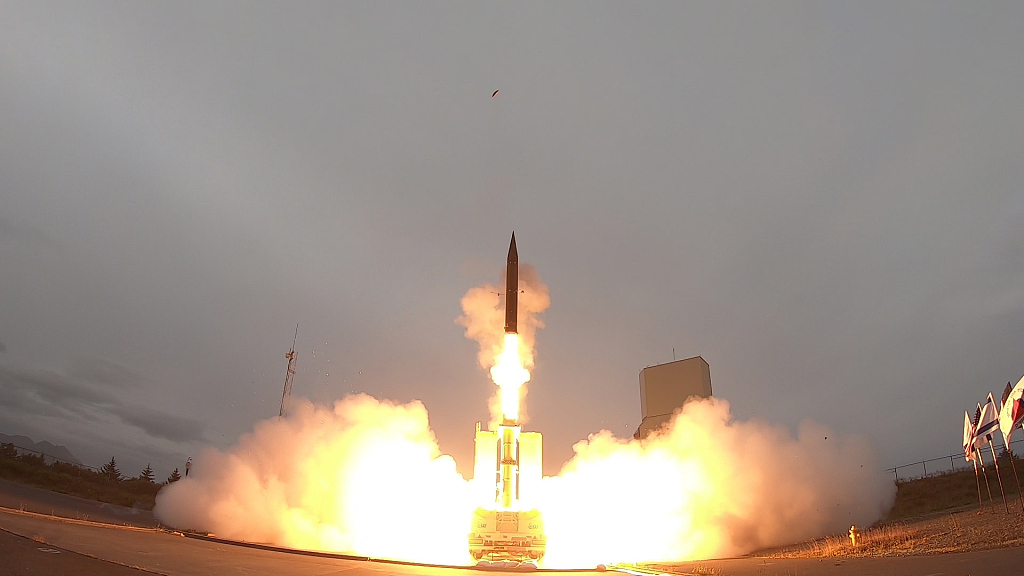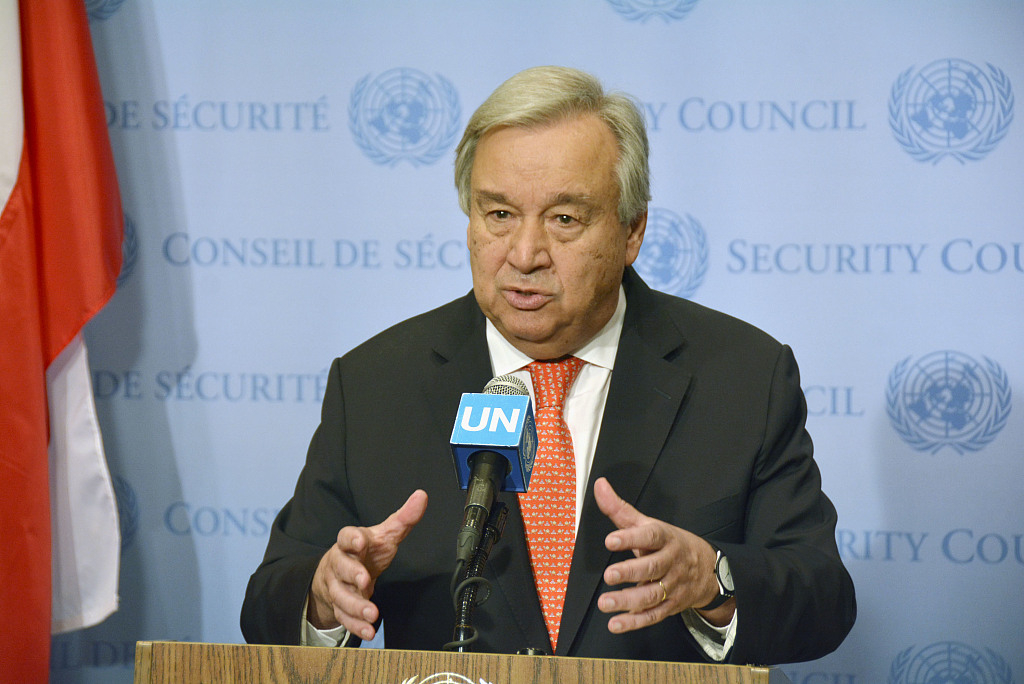

Editor's note: Bobby Naderi is a journalist, current affairs commentator, documentary filmmaker and member of the Writers Guild of Great Britain. The article reflects the author's opinions and not necessarily the views of CGTN.
After binning the Intermediate-Range Nuclear Forces (INF) Treaty with Russia on Friday, war-party Washington says it now wants to quickly deploy new intermediate-range missiles in Asia. New U.S. Defense Secretary Mark Esper says he doesn't know where and this shouldn't take China by surprise: "Washington is no longer bound by the INF Treaty. We would like to deploy a capability sooner rather than later."
Although the new Pentagon chief and top Washington lobbyist for weapons-maker Raytheon hasn't specified where the U.S. intends to deploy these weapons, it's not that hard to speculate. The stated idea is to compete with China everywhere, which has no intention to weaponize the restive region in the first place. Still, Esper insists: "And I want to say that 80 percent of their inventory is INF range systems. So that should not surprise that we would want to have a like capability."
These false arguments should worry the international civil society and the global anti-war movement. They symbolize the twisted morality of those for whom conflict remains the natural state of human existence. The intended message is certainly received loud and clear in many capitals across the region too.
Whatever this is, the new plan is in defiance of international law and ethical statutes in pursuit of such weapons deployments. It's not hard to understand given the enormous profits American businesses and the cult of military-industrial complex will be able to rake in and its potential of reviving a new arms race.
Together with the Trump White House, the "War Party" wants permanent distrust and conflict to drag on without end in Asia. Previously talking up how the wars in Afghanistan and Syria can't last forever, President Donald Trump now wants troops to stay in these countries forever, which is as close to a recipe for permanent war and occupation as one can get.
That seems to also be the case in Iraq and Yemen, where Trump says the U.S. will continue to support the war against the Houthis or that U.S. troops will remain in Iraq, seemingly forever, to "watch Iran." It might just be that the U.S. will never get around to leaving China at peace with itself and its neighbors either. In other words, when it comes to the Pentagon, there is no such thing as over, ever. But why are we not surprised?
Esper's announcement has coincided neatly with the Senate's recent resolution expressing opposition to leaving the Middle Eastern countries. For all the war paths that might be taken again in this terrible new situation, a recent Pentagon report suggests that, "Even if a successful political settlement with the Taliban emerges, the U.S. military should still maintain a robust counter-terrorism capability for the foreseeable future in Afghanistan."

UN Secretary General Antonio Guterres speaks at a press conference at the UN headquarters in New York, August 1, 2019. /VCG Photo
In that mind-boggling context, the same assumption apparently exists for Asia, where Esper insists, "That should be no surprise because we have been talking about that for some time now." This is where Washington's forever war lobby and self-styled triumphalist warriors will soon insist U.S. troops would also be staying more or less forever. The phoney justification is that their troops and missile deployments would allow them to "contain" China. Trump swears it also "creates American jobs."
By every conceivable indicator, Washington's trigger-happy officials and resource-war planners have every intention to remain on the path of arms trade in Asia. And to one degree or another, they all know that triggering a large-scale, state-sanctioned arms race is unlawful per international law.
No Asian nation should ever adhere to this irredeemably flawed and deeply harmful practice in U.S. foreign policy. It would bring no peace or stability by even the loosest definition of the word. Countries in the region should remain assertive and defy American meddling in their affairs, and instead invest more in regional cooperation and dialogue.
The situation isn't complicated. Washington's plan to purposefully ignore reality and deploy new intermediate-range missiles in Asia is irresponsible and unlawful. The cancellation of the Intermediate-Range Nuclear Forces Treaty that used to be a major step toward peace also went against the urgings of Asian heads of state and the international community, even the United Nations which ratified the agreement with Russia.
Predictions are tricky when it comes to Trump, but here's a safe enough bet: Asian nations know fully well that there is no nobility in falling into Trump's trap of regional arms race or in normalizing his belligerence and falsehoods regarding China. They can expect anything from Washington now; he is a very unpredictable international actor.
Asian nations can and should disregard Washington's fake China concerns, go against the institution of immoral/illegal arms race, maintain normal ties with China, ignore the Disrupter-in-Chief's "with us or against us" tweets and publicity stunts, and work for regional peace and stability. The disconcerting truth is that Esper's plan to weaponize Asia makes zero sense from a regional security perspective.
(If you want to contribute and have specific expertise, please contact us at opinions@cgtn.com.)

Copyright © 2018 CGTN. Beijing ICP prepared NO.16065310-3
Copyright © 2018 CGTN. Beijing ICP prepared NO.16065310-3